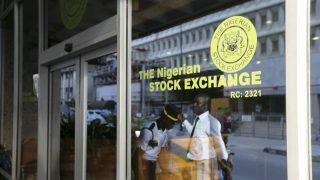In less than a week after the reinstatement of Value-Added Tax (VAT) collection on stock market transactions in Nigeria, reports have shown that investors could pay as much as N2.5 billion yearly in additional costs on trading.
The five-year VAT exemption on stock exchange transactions expired on July 24, 2019. Thus, investors and dealing members of the capital market began to pay the tax for transactions carried out on the Nigerian Stock Exchange (NSE) from July 25. The charges are applicable to commissions earned on the traded value of shares; commissions payable to the Security and Exchange Commission (SEC); and commissions payable to the Central Securities Clearing System (CSCS).
Based on transaction figures in the past two years, the re-introduced VAT payment would cost traders and dealers an average of N2.49 billion yearly or N207 million monthly, the Nation said, adding that the non-reversal of the tax has taken its toll on transactions immediately.
The addition of VAT to market charges last weekend increased total costs of transactions – on both buy and sell sides – from 3.7 percent as at July 24 to 3.9 percent as of July 25. Consequently, stakeholders in the Nigerian capital market have expressed concerns on the matter.
“It will obviously increase transaction costs and make our market more uncompetitive,” the CEO of Sofunix Investment and Communications, Sola Oni, said. “High transaction cost is at variance with global best practices. The policy is (an) overkill at a period when investors’ confidence in the market is still fragile.”
With the re-imposition of five percent VAT, commission payable to stockbrokers increased from 1.35 percent per transaction to 1.41 percent; commission payable to the NSE increased from 0.3 percent to 0.315 percent while the commission payable to CSCS increased from 0.36 percent to 0.378 percent. In addition, investors have to pay stamp duty of 0.075 percent on each transaction.
A further breakdown of the total costs per transaction showed that total costs on the buy-side increased from 1.72 percent as of July 24, 2019, to 1.79 percent by July 25, 2019, while total costs on the sell-side increased from 2.02 percent to 2.12 percent.
The CSCS, the clearinghouse for the stock market, automatically deducts VAT on commissions payable to it and the NSE while operators use preconfigured software. However, both bodies only receive commissions on sale transactions while operators charge commissions on both sell and buy transactions. Stamp Duty and VAT on commissions on both sell and buy transactions are further charged by the government.
Considering total transactions at the NSE had dropped from N2.543 trillion in 2017 to N2.404 trillion in 2018, capital markets stakeholders have berated the government for what they described as its unconcerned attitude towards the capital market, denouncing the re-imposition of VAT on stock market transactions as “insensitive.”








